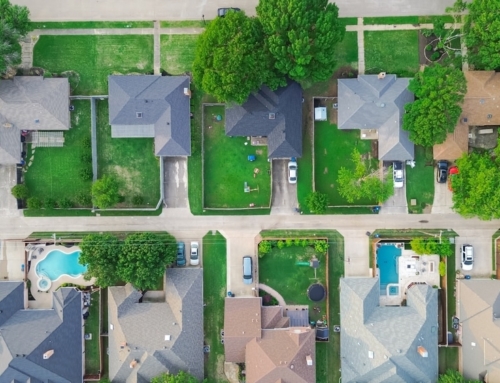Condo living: pros and cons of a small HOA
Q: I purchased my condo in July 2021. Since then, the condo board put through a special assessment for $120 per month for the next 84 months to pay for “unsafe balcony” repairs. This was not disclosed at the time of my closing.
Condo HOA is collecting for building repairs
I’ve made two payments so far, and no work has begun, nor has there been any update furnished by the board. My attorney said there wasn’t enough money involved for him to pursue it. Also a neighbor across the hall is paying a special assessment “in case the roof needs to be repaired.” My seller assumed that assessment of $5,000 at my closing.
Condo HOA board president resigned
We currently have no board president, who resigned due to threats made to her. And another board trustee also resigned. There are two buildings with 12 units in each, and the monthly HOA fee is $280.
Is this a mess, or what? I’d appreciate your opinion. Thank you.
A: We certainly can’t say whether it’s a mess or not. We’re not living there. But there are pros and cons to condo living and we can share our perspective on what might be happening.
Condo living: pros and cons of building repairs
What we know from your question is that your association is going through with repairs to the building. On the positive side, it’s good that a building undertakes to maintain and keep their building in good shape. We’ve seen with the Surfside collapse what can happen if a property does not maintain itself. On the other hand, owners get cranky about ongoing special assessments that never end.
Before you purchased the home, you knew the building was in the middle of repairing the roof. We know you knew because the seller put up the cash to cover their share of the cost. So, why didn’t the special assessment for the balcony repairs come up. The question for you is whether you should have known or found out about the balcony repairs when doing your due diligence.
We can’t know for sure what the particular facts are of your situation. It’s possible that the association had been talking about the balcony repairs for some time. But it’s also possible that fixing the balconies just rose to the top of the list as other items were completed.
Before buying a condo, hire a home inspector
In prior columns we’ve mentioned that buyers looking to purchase a condominium unit should do several things before committing to the purchase. One important thing to do is to have your home inspector take a look around at the common elements of the building: the roof, exterior walls, common plumbing, heating and air conditioning units, hallways and stairways, basements and other areas.
Many inspectors might only inspect the individual unit, but many others will look over other parts of smaller association buildings to give the buyer a sense of the building’s condition.
Condo living: Look at the building budget, minutes and financial statements
Along these lines, a buyer should look into the association’s minutes, budgets and financial statements. The minutes may indicate what the building’s board of directors is discussing relating to repairs or problems with the building. The budget will show where the association is spending money. And, the financial statements will show how much money the building has on hand for future repairs.
Smaller building HOAs tend to run informally and you might not have board minutes. But you should find out where they are spending money and how much money they have in reserves. Sam has seen some smaller buildings where the building has no reserves and the owners pool money together each time they have to make a repair or need to spend money.
Condo living: Check reserve levels
If you have no reserves or the building collects money as it goes for all repairs, you should expect to pay more than the usual monthly assessments from day one after you buy into that association.
In your situation, you’re expecting to pay around $10,000 for the balcony repairs. We’d like to know whether you had an inspection of the unit and whether the inspector noted problems with the balcony. We’d also like to know whether there were any board minutes discussing problems with the balconies. Lastly, we’d want to know whether the state in which your condominium is located has any seller disclosure requirements that would place a burden on the seller to inform you of the balcony issue — if the seller was aware of the problem.
Condo living: Get involved with your condo HOA board
Sam has many clients that never participate or care about how their condominium buildings are run. They simply live in their units and leave the management of the building to others. It would be hard to go after that seller if they did not know of a problem with their building. Others are intimately involved with their buildings and let buyers know of any problems with their buildings.
Should your seller have told you about this issue? Does it meet the threshold for a seller disclosure case? To find out, you might need to talk to a different attorney about your situation. Some state seller disclosure statutes allow you to sue the seller for the failure to disclose and would allow you to recover the attorney’s fees you incur if you win. That would be something to talk about with an attorney on this issue.
Finally, living and running a self-managed small condominium association can be a thankless job. Unit owners resent having to pay for repairs. Volunteer owners who run the affairs of the building take the brunt of the anger unit owners have when assessments go up or a special assessment is levied.
Condo living: Buildings need maintenance and upkeep
Unfortunately, buildings need maintenance, repairs, upkeep, upgrading, redecorating among other things and that costs money. You may live in a building that needs substantial repairs and the volunteer officers of the board feel that they are better off not dealing with the many angry unit owners. But that just leaves the building in worse shape. We hope that the unit owners can come together and determine what needs to be done, how fast and moves to get it done as best they can.
On a separate point, if the association does not have sufficient money on hand to make repairs, it will need to collect money and once it has sufficient funds, the association can hire a contractor to take care of the balconies. As you can imagine, the contractor won’t want to do the work and wait six years to get paid. If the building has obtained a loan from a bank to pay for the repairs, we suspect they will borrow that money, undertake the repairs and then use the money that comes in from the special assessments to pay down the loan. Again, this takes time.
We suggest that you go to the board meetings and familiarize yourself with the people running the building. See if you can help them. Consider running for the board yourself. It may be a time suck, but it will certainly help you understand where your property is as well as the good and bad of owning a unit in a small condominium association.







Leave A Comment